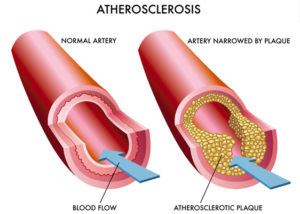Diabetes and Erectile Dysfunction: What’s the connection?
Erectile dysfunction is basically a disorder found in men which could be a sign of physical or psychological condition. The symptoms associated with this disorder is found in men’s reproductive organ i.e. inability to keep an erection firmer and longer enough during a sexual activity.
The causes of erectile dysfunction includes a number of reasons be it physical, psychological, and sometimes even both. One of the main cause of erectile dysfunction is men dealing with diabetes.
As per studies, around 35-37% of men dealing with diabetes will get affected by erectile dysfunction earlier than men without diabetes.
What is Diabetes?
Diabetes is a chronic condition that occurs either when your pancreas are unable to produce enough insulin or when your body cannot effectively use the insulin it produces to regulates the blood glucose. Hyperglycemia, also called raised blood glucose/sugar level, is a common effect of diabetes that is not controlled. Overtime, it can lead to serious damage to many systems and parts of our body which typically includes nerves and blood vessels.

Diabetes affected 8.5% of adults over the age of 18 in 2014. Diabetic complications directly caused 1.5 million deaths in 2019; 48% of these deaths occurred before the age of 70. Diabetic kidney disease results in 460 000 deaths, and raised blood glucose contributes to around 20% of cardiovascular deaths.
Age-standardized mortality rates from diabetes increased by 3% between 2000 and 2019. The death rate due to diabetes increased by 13% in countries with lower-middle incomes. Between 2000 and 2019, the probability of dying from any of the four main noncommunicable diseases (cardiovascular diseases, cancer, chronic respiratory diseases, and diabetes) decreased by 22% worldwide.
Type 1 Diabetes
Diabetes Type 1 (previously known as insulin-dependent, juvenile or childhood-onset) is characterized by low insulin production and requires daily insulin administration. In 2017, there were 9 million people living with type 1 diabetes; the majority are in high-income countries. We do not know what causes it or how to prevent it.
The most common symptoms are excessive excretion of urine (polyuria), thirst (polydipsia), constant hunger, loss of weight, and changes in vision.
Type 2 Diabetes
It is caused by the body’s inefficiency in using insulin, which is formerly called non-insulin-dependent diabetes. Approximately 95% of diabetics have type 2 diabetes. This type of diabetes is largely the result of excess body weight and poor lifestyle choices.
The symptoms are similar to those of type 1 diabetes, but are often less pronounced. Therefore, the disease may be diagnosed years after onset, after complications have already developed. This type of diabetes was previously seen only in adults, but is becoming increasingly common among children.
Diabetes and Erectile dysfunction
It is believed that diabetes is associated with ED because it affects the circulation and nervous system. The blood sugar levels in the body should be controlled properly in order to avoid damage to the small vessels and nerves. An erection that is firm enough to engage in sexual interaction can be impeded by damage to the nerves that control sexual stimulation and response. It is also possible for ED to be caused by reduced blood flow from damaged blood vessels.

Sexually aroused men release a chemical called nitric oxide into their bloodstreams. A large amount of blood flows into the penis thanks to this nitric oxide, which relaxes the arteries and the muscles there, resulting in erection. Diabetes patients often struggle with blood sugar swings, especially if their condition isn’t managed well.
Blood sugar levels become too high, causing nitric oxide production to slow down. An erection cannot be achieved or maintained if there is not enough blood flowing into the penis. Those who suffer from diabetes often have low levels of nitric oxide.
While men who experience occasional erectile difficulties can eventually develop ED permanently, this is rarely the case. The combination of adequate sleep, quitting smoking, and reducing stress may still help you overcome ED if you have diabetes.
Preventing erectile dysfunction through Diabetes
Control your blood sugar: Your blood sugar levels will be better controlled when you eat a diabetes-friendly diet, and your blood vessels and nerves will be less damaged. Erectile dysfunction can be reduced by eating a diet that is geared towards keeping your blood sugar levels in check. Nutrition can also improve your mood and energy levels, both of which can reduce the chances of developing erectile dysfunction. A dietitian who is also a certified diabetes educator may be able to help you adjust your eating style.
Treatments for Men With Diabetes and Erectile Dysfunction
If you have diabetes and are having trouble getting and/or keeping an erection, you can take oral medications like avanafil (Stendra), sildenafil (Viagra), tadalafil (Cialis), and vardenafil (Levitra).
Diabetes patients also tend to have problems with their hearts, so these medications may be inappropriate for them and could interact with heart medications in a dangerous way. Determine what treatment is best for you with the help of your doctor.
Among the treatments men with diabetes could consider are intracavernous injections, vacuum erection devices (not constriction devices), venous constriction devices (for venous leak syndrome), intraurethral therapy, penile prostheses (inflatable and malleable), and sex therapy.
Details on such treatments are discussed in other ED related blog on this website. Feel free to learn something new from us.
REFERENCES:
- https://www.who.int/news-room/fact-sheets/detail/diabetes
- https://www.mayoclinic.org/diseases-conditions/erectile-dysfunction/in-depth/erectile-dysfunction/art-20043927
- https://www.medicalnewstoday.com/articles/317012#why-can-diabetes-cause-erectile-dysfunction
- https://www.healthline.com/health/type-2-diabetes/type-2-and-erectile-dysfunction
- https://www.webmd.com/erectile-dysfunction/guide/ed-diabetes
- https://www.diabetes.org.uk/guide-to-diabetes/complications/sexual-problems-men
For more details, kindly visit below